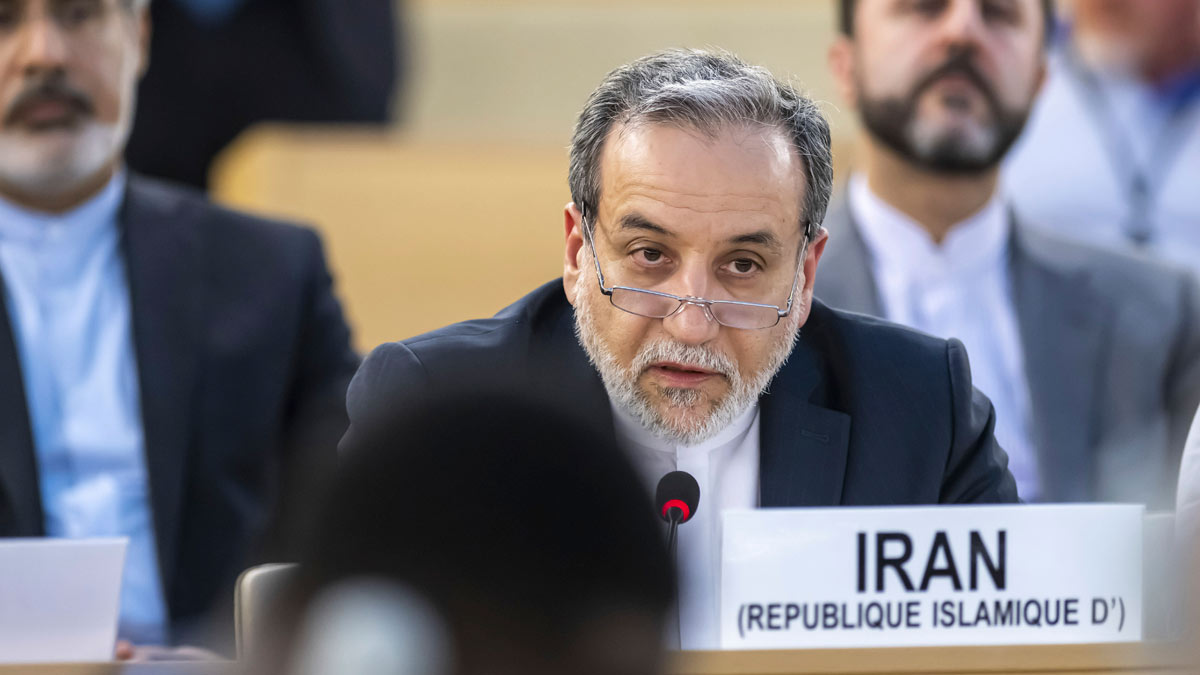Iran no longer bound by restrictions on nuclear programme; Foreign Minister says snapback sanctions ‘unlawful’
 Iranian Foreign Minister Abbas Araghchi speaks during the 59th session of the Human Rights Council at the European headquarters of the United Nations in Geneva, Switzerland | AP
Iranian Foreign Minister Abbas Araghchi speaks during the 59th session of the Human Rights Council at the European headquarters of the United Nations in Geneva, Switzerland | AP
Iran’s Foreign Ministry announced that the country is no longer bound by restrictions on its nuclear programme as the 2015 Joint Comprehensive Plan of Action (JCPOA) agreement has expired. The statement said that "all of the provisions (of the deal), including the restrictions on the Iranian nuclear programme and the related mechanisms, are considered terminated."
Abbas Araghchi, Iran’s foreign minister, said that the country had “implemented the JCPOA in good faith and with full precision” while the United States “grossly violated international law” by withdrawing in 2018 and reimposing unilateral sanctions.
He also told the UN that the Security Council Resolution 2231, which endorsed the deal, has ended, reported Iran International.
The 2015 JCPOA, known as Iran’s nuclear deal, had put a cap on the country’s nuclear activity, most notably preventing it from enriching its large uranium stockpiles for about 15 years. It was signed into effect between Iran, China, Germany, Russia, the United Kingdom, and the United States. It went into effect in January 2016, and Iran was required to reduce its stockpile of uranium by 98 per cent.
The US left the deal in 2018 during President Donald Trump's term. Many of the countries that signed had warned that Tehran was stepping up its nuclear programme since then.
Most of the talks to revive the agreement had failed, and the latest 12-day war between Iran and Israel had ended the prospect for new talks.
Iran had refused to cooperate with the International Atomic Energy Agency, the body that also had oversight of the JCPOA after the conflict.
The deal’s termination was set exactly ten years after it went into effect.
Britain, France, and Germany had notified the United Nations Security Council of Iran’s violation of the nuclear deal. The UN then reimposed the snapback sanctions, which had been lifted under the deal. The snapback provision allows the rapid reimposition of all UN sanctions if the country is found violating the deal commitments.
Araghchi said that the three European signatories “failed to meet their obligations and instead imposed additional unlawful measures.” He called the snapback sanctions on the country ‘unilateral and arbitrary’.
The three countries announced last week that they are trying to restart talks aimed at a "comprehensive, durable and verifiable agreement."
Tehran has denied multiple claims by the West and Israel, which accused the country of trying to acquire nuclear weapons and have said that its programme has been energy and civil-focused.
Middle East